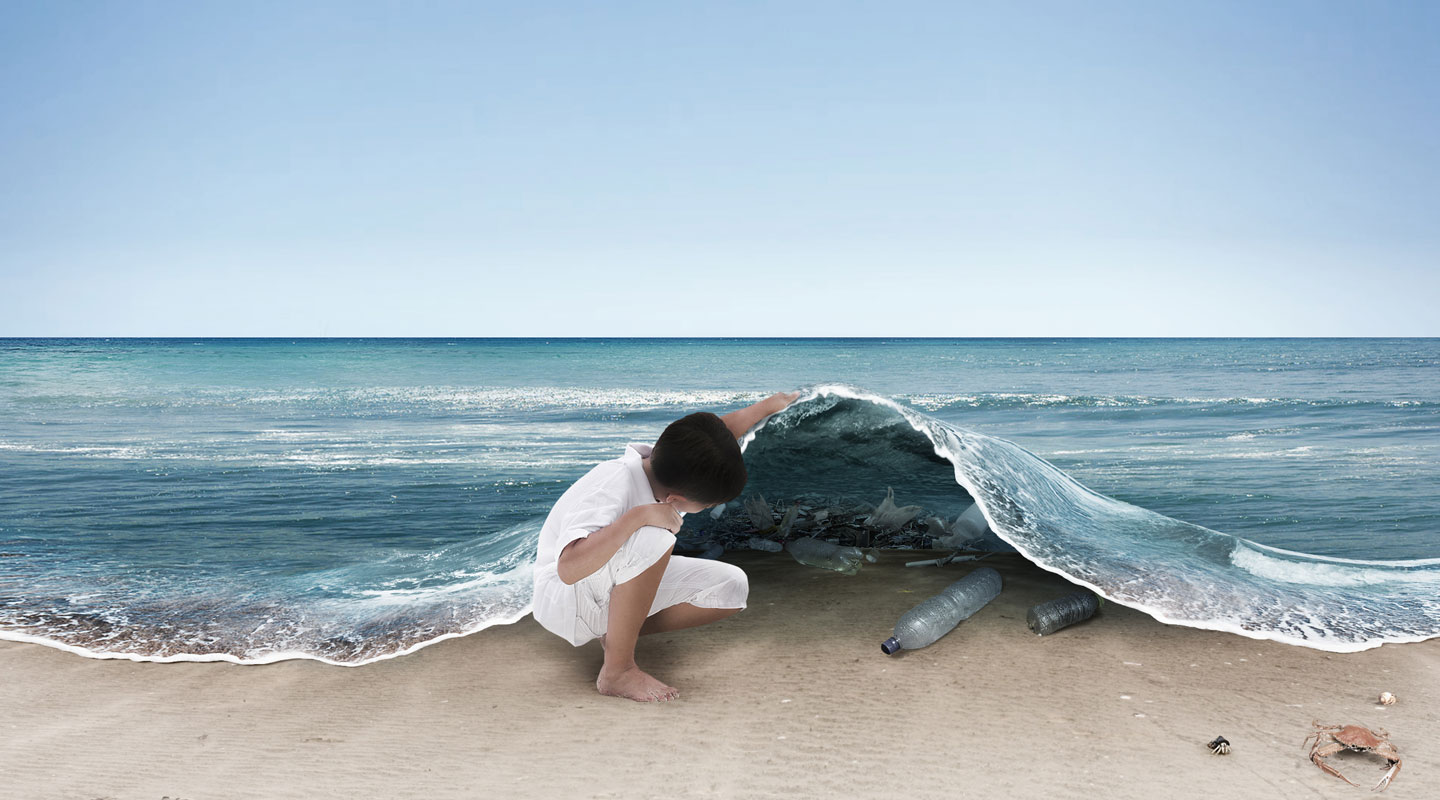Dear readers, With the launch of e-newsletter CUHK in Focus, CUHKUPDates has retired and this site will no longer be updated. To stay abreast of the University’s latest news, please go to https://focus.cuhk.edu.hk. Thank you.
A Drop in the Ocean

IT IS NO SECRET THAT the Earth is sick. But how sick and for how long? In 1992, more than 1,700 scientists signed the ‘World Scientists’ Warning to Humanity’, calling for greater environmental awareness and actions taken to halt the rate the world’s environment was destroyed and its natural resources depleted.
Twenty-five years later, the situation has worsened. A second notice was issued by over 15,000 scientists from 184 countries to humanity, that is, to you and me.
One of the warning signals sounded is on waste and its effect on the ecology. Modern urban conveniences depend on the massive production and then massive dumping of plastic products, which inevitably end up in the oceans. As the documentary A Plastic Ocean shows, humans litter the oceans with plastic and microplastic—bags, bottles, nurdles, etc.—which enter the marine food-chain. Some scientists estimate that by 2050 there will be more plastic in the oceans than fish. And what fish left may be toxic from a diet of plastic instead of plankton.
In one scene of the documentary, a researcher scoops out 234 pieces of plastics from the stomach of a shearwater. The pieces come in different sizes, shapes and colours, an eerie mosaic of a rabbit pulled out of the magician's hat.
In another scene, the searchlights of a deep-diving submersible illuminate the ocean floor hundreds of metres down under. Not much sea life is found at this depth but surprisingly one can see plastic bottles lying around. These bottles will last for as long as the Earth does, a lasting testimony to plastic's durabilty and mankind's stupidity.
The Government has announced that it will stop selling small bottled waters in all its vending machines. Similar steps were taken much earlier at CUHK. We began saying no to bottled waters a few years ago and have achieved a 15% reduction of municipal solid waste per capita in the five-year period from 2012.
The latest sustainability drive is the ‘Bring Your Own GO! Campaign’. Twenty-five cafes, canteens or restaurants on campus have pledged to encourage or offer incentives to diners to bring their own utensils. Some have gone an extra mile by joining the ‘No Straw Campaign’ and will on certain dates not provide disposable straws to customers.
If we don't do more, the third notice may take less than 25 years to arrive.
This article was originally published in No. 508, Newsletter in Dec 2017.